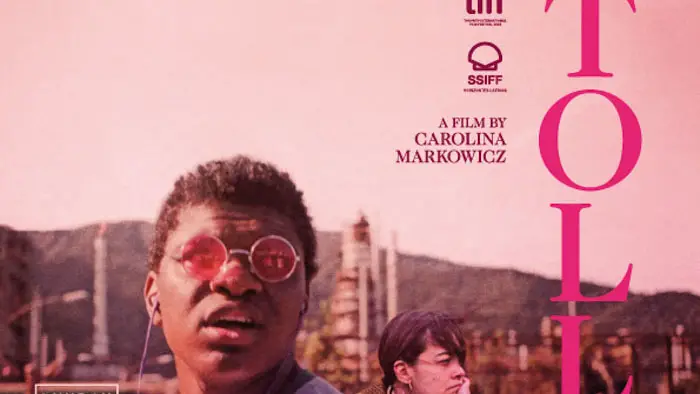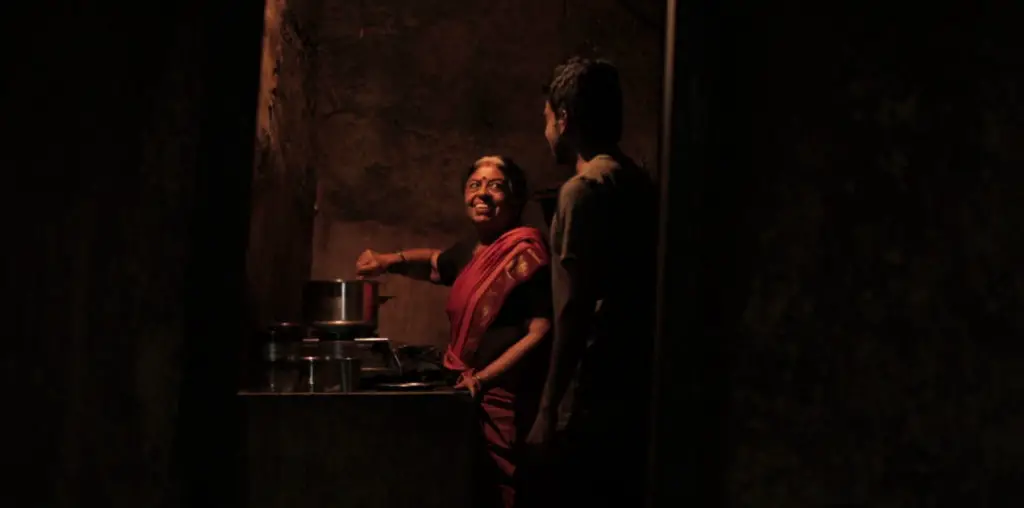
TORONTO INTERNATIONAL FILMS FESTIVAL 2023 REVIEW! Gay conversion therapy has been center stage in the battle for LGBTQ+ rights around the world. Many religious institutions here and elsewhere support the notion that orientation can be fixed (or “prayed away”). They have justifiably come under constant attack from civil rights groups and mental health professionals because of reported abuses and the lasting damage that the methods of these practices cause.
Carolina Markowicz shines a light on a similar dynamic in Brazil through her film Toll (or Pedágio), a memorable film bolstered by a dominant performance from Brazilian star Maeve Jinkings (a regular in the films of Brazilian auteur Kleber Mendonça Filho). Most importantly, it’s a film destined to hit home for fighting against these exploitative institutions and for LGBTQ+ rights writ large.
Jinkings plays Suellen, a conservative single mother barely getting by as a toll collector. Her son Tiquinho (Kauan Alvarenga) has started recording himself singing and dancing while dressed in drag. Embarrassed by her son’s behavior, Suellen is relieved when her manipulative and ethically questionable coworker (you’ll know it when you see it) introduces her to a local program designed to eliminate homosexuality in young people through religious teaching. Some of their methods involve bizarre activities like remolding clay penises into sculptures of vaginas and parading around “cured” individuals. The only problem for Suellen is that the program is exorbitantly expensive. Through the assistance of her loser boyfriend Arauto (Thomas Aquino), they devise a scheme to pay for it by robbing wealthy drivers passing through her toll.

“…introduces her to a local program designed to eliminate homosexuality in young people through religious teaching.”
We’ve seen movies pushing back against anti-gay institutions, but what makes Toll stand out is Markowicz’s refreshing willingness to give Suellen multiple dimensions as a character. She’s not just a Bible-thumping authoritarian. She legitimately wants what’s best for her son in a culture (or at least a local community) that can still be unfriendly to gay individuals living openly. She may not even truly care about Tiquinho’s orientation. She just wishes he would keep it under wraps because influential people she knows are catching on to his lifestyle. Her actions aren’t justified, but the fact that she’s not cartoonishly evil gives the picture a nuance that mirrors reality.
On the other hand, Toll is less compelling when it strays from Suellen. The narrative subthread around the toll robberies is anything but entertaining, and there’s never any doubt in our minds that they won’t get away with it forever. The brief introduction of an overlord of an organization profiting off of robberies might as well be the jumping-off point for an entirely different movie. Additionally, while many of the sequences inside the conversion center are shocking, the romance that develops between Tiquinho and a young boy feels perfunctory and forced. They share a few short sequences together, but it’s not enough to convince viewers that it’s necessary. Still, Toll is a worthy addition to the filmography of one of Brazil’s greatest working actors, and I hope it gets proper distribution here in the States.
Toll screened at the 2023 Toronto International Film Festival.

"…a memorable film bolstered by a dominant performance"



[…] Supply hyperlink […]